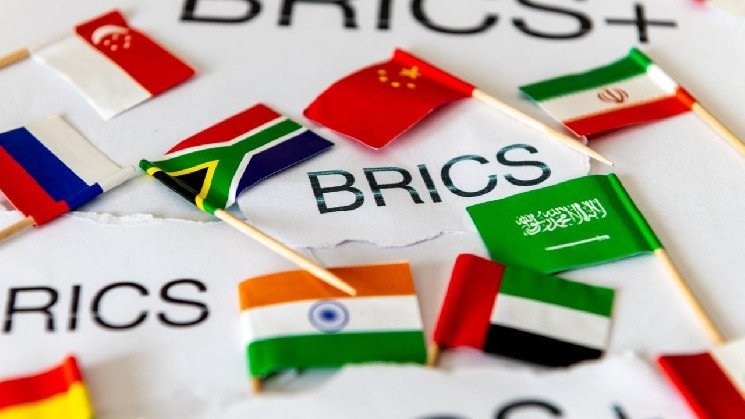BRICS nations are accelerating efforts to create independent payment systems, aiming to bypass Western financial dominance.
BRICS Advances Alternative Payment Systems to Reduce Western Dependence
BRICS nations are actively discussing the development of alternative payment platforms to reduce their dependence on American financial systems, Tass reported on Feb. 19, citing Russian Foreign Minister Sergey Lavrov. Addressing the Russian State Duma, Lavrov emphasized that the initiative was originally pushed by Brazilian President Luiz Inácio Lula da Silva.
“This is being discussed in BRICS, at the initiative of [Brazilian President Luiz Inacio] Lula da Silva … The previous summit stated a decision on the necessity of developing a proposal on alternative payment platforms through finance ministries and central banks,” he detailed, elaborating:
Such proposals have been made, they suggest, in particular, the creation of a so-called transborder payment initiative, the creation of a reinsurance company, and the BRICS Clear settlement and depositary infrastructure.
The proposal aims to provide member states with greater financial sovereignty through independent transaction mechanisms.
The 16th BRICS Summit, held in Kazan from Oct. 22-24, 2024, marked a major milestone under Russia’s chairmanship. It was the first summit to include newly admitted members. During the event, BRICS leaders formalized their commitment to alternative payment solutions through the adoption of the Kazan Declaration. The declaration outlined key financial goals, including “the possibility of establishment of an independent cross-border settlement and depositary infrastructure, BRICS Clear, while member states’ finance ministers and central bank chiefs were tasked with properly continuing the consideration of the issue of using national currencies, payment instruments and platforms.” The move signals a collective effort to establish a financial system less reliant on Western institutions.
BRICS nations have been actively working to reduce their reliance on the U.S. dollar in global trade and financial transactions. Many member states have increasingly turned to local currencies in trade agreements, aiming to bypass Western-dominated financial systems.
The push for alternative payment platforms, such as BRICS Clear and a trans-border payment initiative, is distinct from discussions about a single BRICS currency. While the payment platforms focus on enabling cross-border transactions using existing national currencies, the single currency initiative—still in early discussions—would require deeper financial integration and a shared monetary framework. Unlike a common currency, which demands extensive policy coordination, independent payment platforms allow BRICS nations to strengthen economic cooperation while maintaining control over their domestic monetary policies.
Read the full article here
